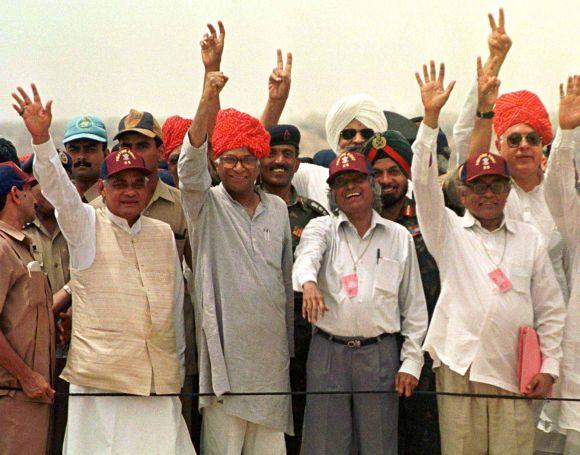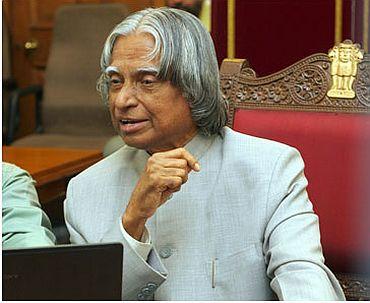Photographs: Reuters
India was forced to go nuclear and develop ballistic missiles to strike a balance of power in the region as "big nations" around the country were armed with atomic weapons, former President A P J Abdul Kalam said on Thursday.
"You see, big nations around India have had their nuclear weapons at that time, and it was important for India to develop ballistic missiles to make a balance...it also did not cost high," 'missile-man' Kalam told PTI on the sidelines of a regional conference here, without naming the countries.
Kalam's response came when asked if he had any guilty feeling for his pivotal role in India's nuclear programme as he now spearheads campaigns for regional peace.
The former President said he had no guilty feeling for his work as it appeared crucial for his country for ensuring "balance of power" at that time.
He said India had to spend "little" in the development of nuclear-capable missiles named Agni and Prithvi and the question of fund diversion from poverty alleviation to militarisation was not fully authentic.
"The Indian missiles would (also) never be used first unless it was attacked," Kalam said.
...
'South Asia will emerge as an integrated region'
Image: Former President Dr APJ Abdul KalamHe said that despite differences between countries in the region, he expected South Asia to emerge as an integrated region like the European Union in the next 10 years.
"I think South Asia will emerge as an integrated region...in next 10 years" discarding their rivalry following footsteps of the EU and ASEAN nations, he said.
Kalam referred to the integrity of the European nations which they developed despite their centuries-long enmity.
Kalam said the countries in the region now must join hands for mutual benefit as he named the resources of individual nations, identified their challenges and suggested ways for their enhanced cooperation.
"Now is the time to focus on bringing regional peace and spend more money for poverty alleviation and rural development," said Kalam, one of the most respected scientists in the contemporary world.



article